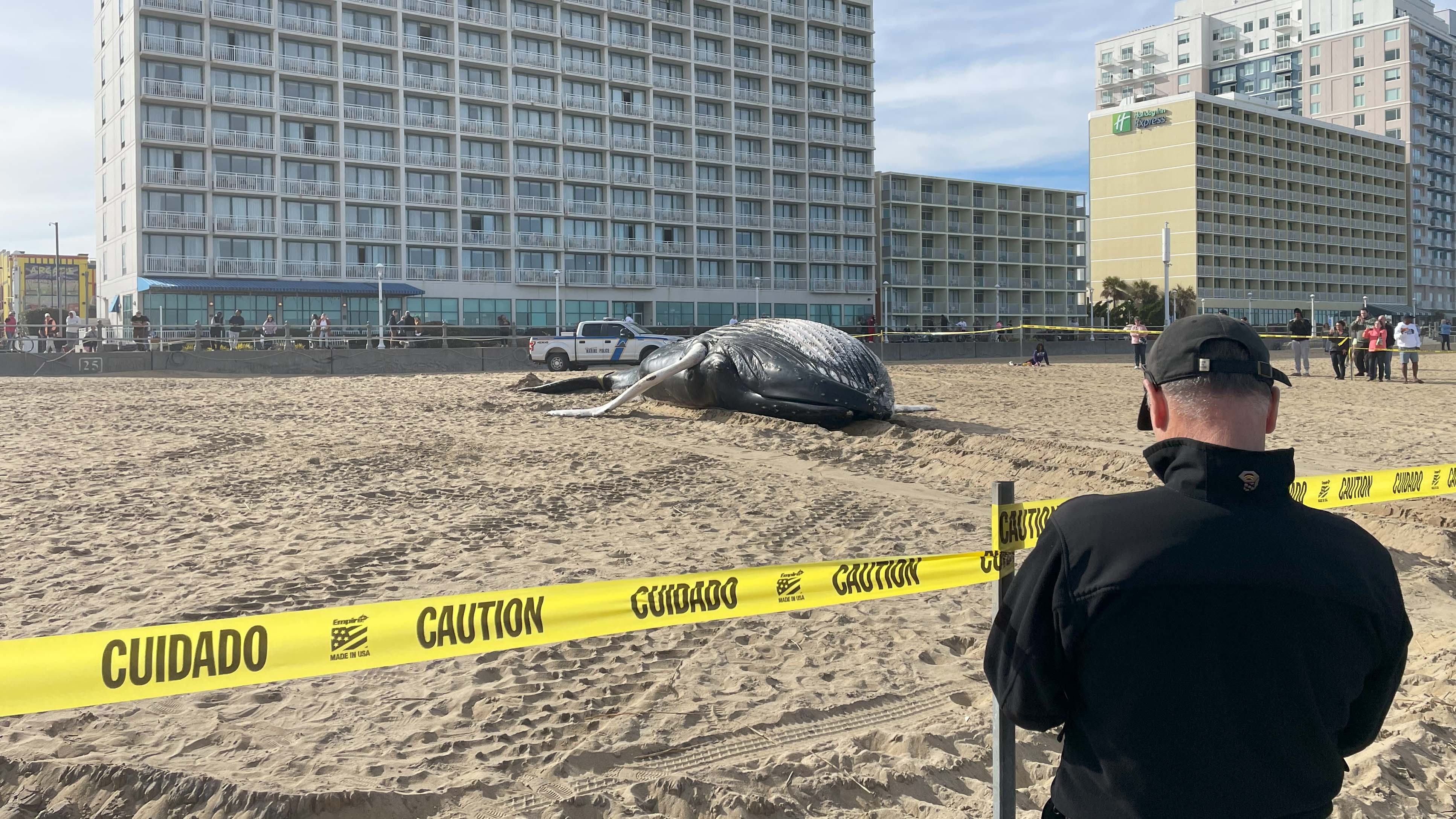
Officials are investigating what happened to two humpback whales that died in Virginia Beach in recent days.
On Sunday morning, a juvenile male whale washed ashore at the Oceanfront after being seen floating near the Chesapeake Bay Bridge-Tunnel. It was 32 feet long and weighed an estimated 32,000 pounds, according to the Virginia Aquarium.
Hundreds of onlookers gathered near 25th Street to watch the aquarium’s stranding response team pull the whale up the beach. Officials on Monday conducted a necropsy to determine the animal’s cause of death, though nailing down the cause is not guaranteed.
The stranding team then buried the remains in the sand further north "as is standard procedure for deceased whales, deep enough so as not to interfere with beach activity," aquarium spokesperson Kristina Scott said in an email.
A separate dead humpback whale was also spotted on Sunday, floating a few miles off of Rudee Inlet. It washed ashore Monday at False Cape State Park. Scott said the stranding response team plans to examine the animal in the next few days.
The aquarium emphasizes that whales are protected by the Marine Mammal Protection Act, which makes touching them illegal.
According to the Mid-Atlantic Whale Monitoring Project – which is funded by the U.S. military – the second whale was spotted near Cape Henry Lighthouse a few weeks prior and appeared to have an “unusual skin condition.”
Humpback whales migrate through Virginia this time of year on their way north to spring and summer feeding grounds.
Humpbacks along the East Coast have been dying at a high rate since 2016, in what the National Oceanic and Atmospheric Administration calls an unusual mortality event.
More than 200 humpbacks have died in that time frame, including 31 in or offshore of Virginia.
Early last year, Hampton Roads saw a string of whale deaths, including a critically endangered North Atlantic right whale. Scientists believe there are only about 360 right whales remaining in the Atlantic.
Whales getting entangled in fishing gear or colliding with ships are the leading causes of death, marine biologist Andrew Read with Duke University previously told WHRO.
Warmer waters from climate change are also starting to affect some whales’ patterns.
“In humpbacks in particular, it's bringing those whales closer to shore where they're more vulnerable to entanglement in fishing gear and ship strikes,” Read said.
Whale deaths coastwide in recent years have stirred up opposition to offshore wind projects, with opponents claiming the industry is to blame for the fatalities.
A coalition of conservative interest groups have threatened to sue the federal government over Dominion Energy’s wind farm off Virginia Beach.
Scientists say there is no evidence linking whale deaths to the offshore wind industry.




